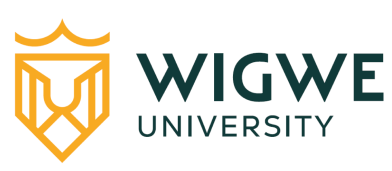The world emerged from the pandemic-curtailing lockdowns of 2020 into a period of economic volatility that persists till today. For 2023, the World Bank and International Monetary Fund (IMF) forecast a slower global economic growth rate characterized as bordering perilously close to a recession.
Current expectations are that growth in advanced economies will slow down to 0.5% in 2023 from 2.5% in 2022 and 5.3% in 2021. Against this backdrop, emerging nation economies are projected to experience a decline in growth to 2.7% in 2023, down from 3.4% in 2022 and 6.7% in 2021, with none of these growth rates being able to lift the bulk of their populations beyond the poverty line.
The reason I have started by painting this scenario, despite wanting to talk about how this presents a perfect opportunity for Nigeria to map out its resurgence as an important global economy, is to point out that in the face of present hard-felt economic discomfort, Nigeria is not an isolated case. The economic headwinds that have swept across the globe in the wake of the pandemic have left no country untouched at both a national scale and at the street level. Nations are faced with high inflation rates and monetary tightening that have translated to a globally spread cost-of-living crisis. However, beyond the search for the proverbial silver lining, this moment presents an excellent opportunity for Nigeria to recalibrate.
Like many Nigerians, I dream of a Nigeria that is in truth and deed the Giant of Africa. What that Nigeria looks like to me is one where we continually build people and institutions that operate at the highest levels in their specific areas of specialization, irrespective of whether they are at the grassroots, local government, state, or national level. My faith in this possibility is deeply rooted in the facts that; most advancements in human history are the results of our ability to progress in the face of considerable odds; that Nigerians remain one of the most resilient people in the world; and that in my personal experience at Access Bank, we have built an institution that has grown from a lowly ranked bank to rapidly becoming an important international financial institution in less than 25 years, so growth in a downturn is not impossible.
Historically, economic slumps provide a moment to self-reflect and course correct. The fundamental assessment made by countries, organizations, and individuals at this time usually circles the extraction of more value from the present resources within their control and the identification, conception, and execution of initiatives to spur the next growth cycle.
Achieving growth at both microeconomic and macroeconomic scales can only come from improving productivity, increasing demand, and attracting capital inflow by way of revenue or investment. Realizing all three in a time of economic constraints hinges on how much trust in the Nigerian economy can build, earn and position for leverage by both the public and private sectors in collaborative and individual efforts that employ both short- and long-term thinking.
My recommendation here will be a swift move to close existing gaps in human capital development, widespread infrastructure deficits that slow the speed of commerce, and strengthening institutions that position Nigeria as an attractive investment destination. All of this should be done with the objective of priming Nigeria for a post-oil world where its people and indigenous businesses can compete on a regional and global scale. I have highlighted a few of my recommendations below:
- Human Capital Development: With an annual population growth of 2.4%, and 70% of the population under 30 years of age, Nigeria has a potentially higher productive populace than most advanced economies where population growth is cooling off. On the surface, these numbers present as a positive statistic; however, it might be misleading as it does not capture the competitive quality. Nigeria needs to ensure that its youth are globally competitive by enabling them to attain high literacy levels, alongside work and vocational skills that make them employable and productive with or without tertiary education. We must develop policy that enables mass access at a local level, with incentives for the private sector participation through funding and other support initiatives.
Examples of programmes here can range from early introduction of software coding in public school curricula, to the creation of highly accessible and subsidized youth centres of vocational, technological, and entrepreneurial learning that are constantly adapting to relevant changes as these fields evolve globally. Local enterprises should also be encouraged to provide internships to community youths as the impact of early sensitization to business is sure to boost capacity and productivity.
We will also need to invest heavily in education and monitor that the standards of learning & tutorship remain globally relevant at the public school level. We must uphold the importance of having a well-educated citizenry, as we know fully well that nothing uplifts people out of poverty like a good education, and a poorly educated populace makes for a poor national workforce in the future.
The present rise in global recognition of Nigerian software development talent, many of whom are self-taught, indicates what can happen when a clear path to reward for knowledge and productivity is shown and the heights that can be attained when easy access to skill development is institutionalized.
- Commerce Enabling Infrastructure: We must sharpen our focus on developing hard and soft infrastructure that enables local players, both big and small, to conduct business faster and cheaper, scale quicker, and grow to their fullest capacity. Our infrastructure development philosophy must be one that is tied to facilitating exports for businesses of all scales, such as a young fashion designer in Lagos trying to make her name in the fashion centres across the world, to a large-scale farmer seeking to move their goods from the furthermost part of the country to markets, stores, and ports with minimal loss.
If we succeed at this, Nigeria will benefit from the attraction of investment to its real sector. We can also become a key contender for the location for manufacturing as businesses in advanced economies move shop to emerging countries following the slowdown in China.
- HealthCare: Nigeria presently trains some of the best doctors and healthcare practitioners in the world, so it is worrisome to see the consistent outflux of a considerable portion of this talent to other parts of the world. The saying that health is wealth rings clear here, and the benefits of increasing the life expectancy rate on national productivity are too important to dismiss. Every country in the world should be able to treat its people, and Nigeria is no exception.
While engagements with medical professionals show that reasons for the brain drain in this sector range from poor remuneration to a lack of appropriate medical facilities to apply themselves fully, the rate of international medical tourism by Nigerians indicate a willingness to pay for good healthcare locally if the facilities and expertise are present in the country. In this regard, we can incentivise investments in this sector by developing policies that ease financing and tax obligations for hospital organisations that build facilities that match global standards.
Healthcare is a fundamental area of concern to me, and I am very proud that Access Bank recently financed the construction of the Duchess Hospital, a 100-bed state-of-the-art multi-specialist hospital in the heart of Lagos that hires best-in-class medical professionals. To us, completing a hospital of that calibre, at this time, will help curb the brain drain of medical personnel within the country by providing a facility where they can apply their skills locally while also preventing the outflow of monies that would have otherwise gone into treatment abroad by patients. However, this is just one hospital of the type we need at least 100 more of in the near term.
- Leveraging Technology to Improve Growth and Competitiveness: The world has changed considerably since 2020, and those who seek a return to what was familiar before the pandemic stand more to lose. Technology and automation are increasingly part of how the world works today, with clear indications of the benefits provided when deployed at scale. This goes for individuals, businesses, and nations at large.
Businesses must begin to invest in technology that reduces time to market, provides adequate performance analytics, and delivers better turnaround. Support programmes to improve the capacity of small and medium-scale enterprises to leverage development can be deployed at the local government level to increase business efficiency.
- Strengthening Institutions that Assure Productivity: Businesses thrive best in operating environments that have multiple levels of stability; this sense of certainty comes from the effectiveness of several public sector institutions that comprise regulators, policymakers, public-private business councils, the legal system, law enforcement, and security agencies in deploying their duties.
Ensuring that these agencies can deliver on their remit highly improves the ease of doing business, increases the potential to attract investments, and drives national productivity.
The interventions needed to grow the Nigerian economy clearly indicate that we can not afford a return to the better days of yore. We must instead beat a path towards becoming a high-trust economy, where citizens, residents, and business investors believe that the operating environment can be depended on. The influx of multimillion-dollar investments in tech start-ups run by young Nigerians points to a future of what is possible if we can implement systems that catalyse growth.
None of this is possible without constant engagement and collaboration by policy and private sector stakeholders in a cooperative relationship where both sides are focused on the better interests of Nigeria and its economy.
I believe there is much growth in the Nigerian economy that we are yet to scratch the surface of. As we say at Access Holdings, the only way to predict the future is to create it. A better Nigerian economy is possible, and all it takes is for us to collectively make it so.



